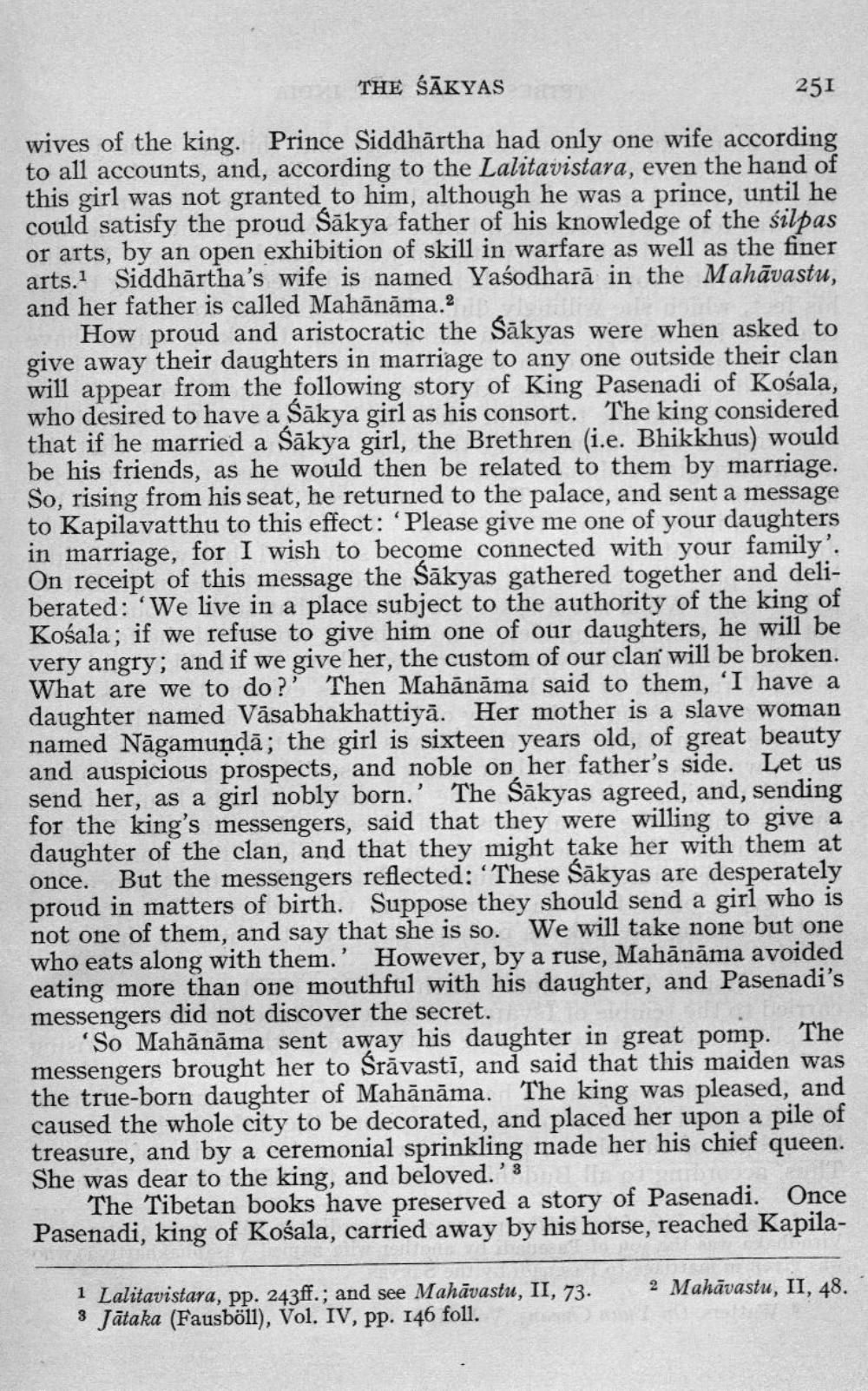________________
THE ŚĀKYAS
251 wives of the king. Prince Siddhārtha had only one wife according to all accounts, and, according to the Lalitavistara, even the hand of this girl was not granted to him, although he was a prince, until he could satisfy the proud Sākya father of his knowledge of the silpas or arts, by an open exhibition of skill in warfare as well as the finer arts. Siddhārtha's wife is named Yasodhar, in the Mahāvastu, and her father is called Mahānāma.
How proud and aristocratic the Sākyas were when asked to give away their daughters in marriage to any one outside their clan will appear from the following story of King Pasenadi of Kośala, who desired to have a sākya girl as his consort. The king considered that if he married a sākya girl, the Brethren (i.e. Bhikkhus) would be his friends, as he would then be related to them by marriage. So, rising from his seat, he returned to the palace, and sent a message to Kapilavatthu to this effect: 'Please give me one of your daughters in marriage, for I wish to become connected with your family'. On receipt of this message the Sākyas gathered together and deliberated: 'We live in a place subject to the authority of the king of Košala; if we refuse to give him one of our daughters, he will be very angry; and if we give her, the custom of our clan will be broken. What are we to do?' Then Mahānāma said to them, 'I have a daughter named Väsabhakhattiyā. Her mother is a slave woman named Nāgamundā; the girl is sixteen years old, of great beauty and auspicious prospects, and noble on her father's side. Let us send her, as a girl nobly born.' The Sākyas agreed, and, sending for the king's messengers, said that they were willing to give a daughter of the clan, and that they might take her with them at once. But the messengers reflected: “These Sākyas are desperately proud in matters of birth. Suppose they should send a girl who is not one of them, and say that she is so. We will take none but one who eats along with them.' However, by a ruse, Mahānāma avoided eating more than one mouthful with his daughter, and Pasenadi's messengers did not discover the secret.
'So Mahānāma sent away his daughter in great pomp. The messengers brought her to Srāvastī, and said that this maiden was the true-born daughter of Mahānāma. The king was pleased, and caused the whole city to be decorated, and placed her upon a pile of treasure, and by a ceremonial sprinkling made her his chief queen. She was dear to the king, and beloved.' 3
The Tibetan books have preserved a story of Pasenadi. Once Pasenadi, king of Kośala, carried away by his horse, reached Kapila
1 Lalitavistara, pp. 243ff.; and see Mahāvastu, II, 73. 8 Jataka (Fausböll), Vol. IV, pp. I46 foll.
2 Mahāvastu, II, 48.




